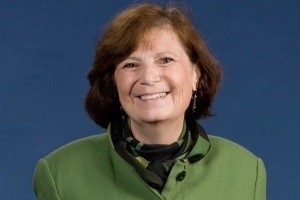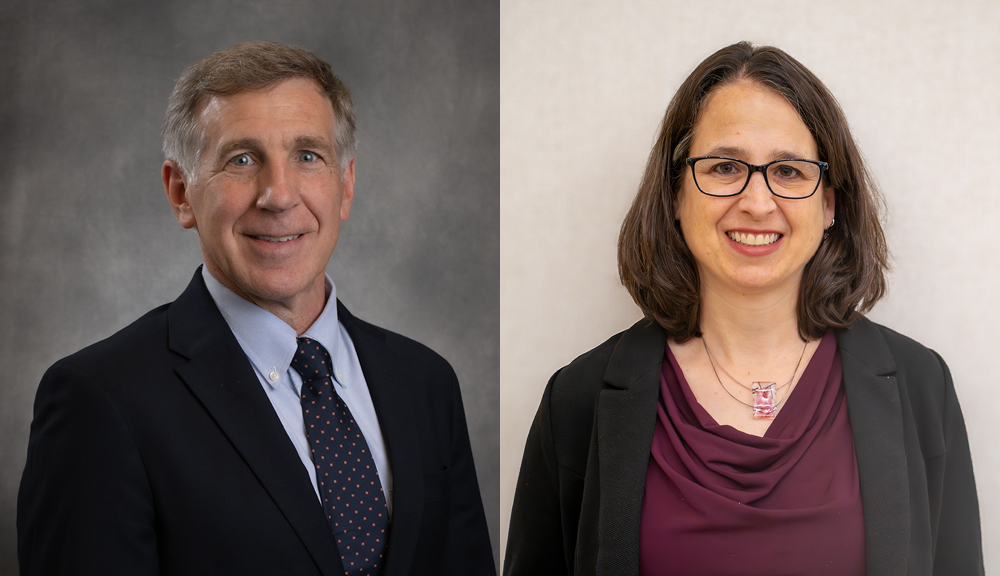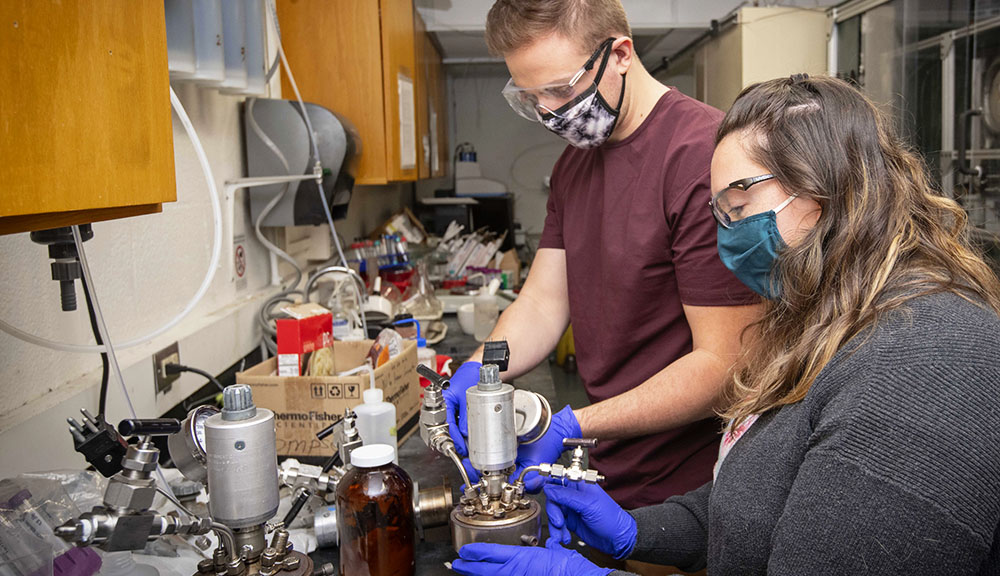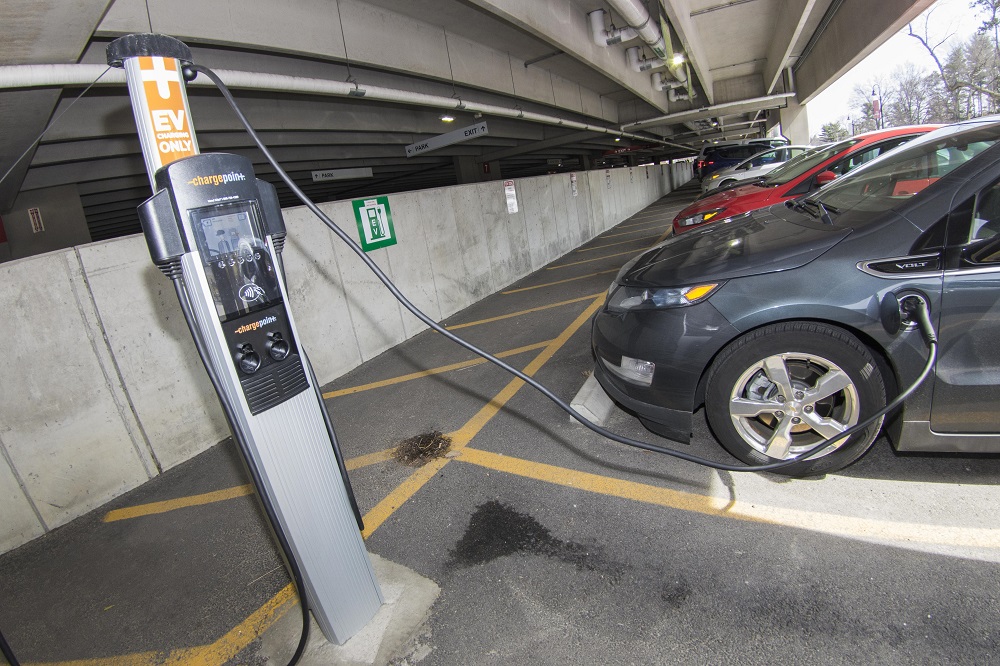In developing the Water Innovation Workshop scheduled for Oct. 24, Dean of Arts and Sciences Karen Kashmanian Oates started with a keen awareness of New England’s bounty of cutting-edge university research and industry innovation aimed at providing abundant, clean water.
At WPI, for example, the Water Resource Outreach Center focuses on advanced water treatment technology and delves into the creation and management of sustainable water policy. Some 26 faculty members are involved with water issues in engineering, science, and policy, according to a report Oates assembled, and at least 38 student projects throughout the world have dealt with subjects such as waste water management, salt intrusion, and desalination.
But Oates also knows that researchers, industry and financing professionals, and government regulators don’t collaborate enough.
So she is bringing together 150 specialists from academia, industry, government, and educational groups to identify, address, and share solutions to improve water supply, abundance, access, and safety.
The workshop comes at a time when the subject of water is very much in the public consciousness with the ongoing lead-in-the-water crisis in Flint, Mich., and the continuing drought in Massachusetts and the Northeast, which has meant brown lawns, diminished water supplies, shrinking aquifers, and a limited local harvest.

Karen Kashmanian Oates
“There is a real need to innovate around water quantity and quality,” says Oates, who is also a biochemistry professor, “and the people who do this come from different areas and they really need to talk to each other.”
Oates has obtained a grant from the National Science Foundation and has been working with the New England Water Innovation Network (NEWIN), a group that seeks to bring water professionals together, to create the workshop.
NEWIN is working toward market driven solutions to water problems. It sees a $10 billion market in New England and New York for products to deal with coastal water contamination, and annual growth rates of 15 percent in demand for sensor and other technology to monitor municipal and industrial water systems, and 9 percent in new methods for recycling, reusing, and recovering water.
“The whole workshop is based on the fact that we have a challenge, and to solve that challenge we have to bring all the stake holders together,” Oates says.
Marcus Oliver Gay, NEWIN executive director, agrees with Oates that a key reason for the workshop is the existence of so much creative activity in the water sector in New England.
“We have the highest concentration of academic research, water industry professionals, and other components of an innovation ecosystem,” Gay says.
“The way that our organization and this workshop help is through networking and knowledge sharing,” he says, “helping innovators identify the right problem, helping them get access to the right resources, and connecting them to the right strategic partners.”
The workshop is also being sponsored by Science Education for New Civic Engagements and Responsibilities, the University of Massachusetts Water Resources Research Center, and the Campus Compact organizations from Massachusetts, Maine, Connecticut, New Hampshire, and Rhode Island.
It is an example of the kind of collaboration that Gay sees as essential in dealing with water-related challenges.
The organization cites a 2012 Massachusetts Water Resources Authority study that predicts a $40 billion gap between water infrastructure needs and resources by 2020.
“It’s unlikely we are going to close that gap by charging rate payers more money,” Gay says. “So we’re going to have to invest in innovative solutions that cost less and offer higher efficiencies.”
NEWIN is working toward market-driven solutions to water problems. It sees a $10 billion market in New England and New York for products to deal with coastal water contamination, and by 2020 a 15 percent growth in demand for sensor and other technology to monitor municipal and industrial water systems, and a 9 percent gain in new methods for recycling, reusing, and recovering water.
Oates believes the workshop is an important step in accessing that market and dealing with water problems in the future.
“We’re going to be able to make a difference,” she says, “a difference in creating new technologies and new innovation to help to conserve water and at the same time have good quality water.”
The workshop will cover a wide range of water-related topics, such as the role of water innovation clusters and of academic research and education and the existence of domestic and international commercial opportunities. The organizers are also calling on undergraduate and graduate students to create posters about their water-related research and projects for display at the workshop.
A workshop session on storm water infrastructure will deal with new approaches in preventing runoff from polluting rivers, while another will look into the water needs of industries such as soda and beer makers.
Paul Mathisen, associate professor of civil and environmental engineering, will lead a session on water sustainability management, focusing on how to ensure water supplies are maintained and protected. The session, which is being organized with help from UMass Water Resources Research Center, will take into account the implications of the current drought in Massachusetts and other parts of the Northeast and also climate change, he said.
Mathisen applauded the interdisciplinary approach of the workshop.
“Our hope is that we can establish some research initiatives and collaborative programs where we will be able to work together in the future,” he says.
Richard Stover, executive vice president of Desalitech Co., a Newton-based desalination firm, plans to participate in a number of sessions, including a panel on water innovation clusters.
Stover sees the workshop as a way of networking with others in the water sector, finding out about new technology, encouraging a new generation of researchers and exploring ways of financing water startups into successful businesses.
“I definitely feel a sense of engagement,” says Stover, whose firm markets a system that substantially cuts energy use in the sea water desalination process. “I have a personal stake in that this is what I do … I’ve been doing. I’m a water man.”
Chi Ho Sham, a consultant with the Eastern Research Group Inc. of Lexington, will moderate a panel on drinking water that will discuss innovative ways to keep contaminants out of the water by dealing with the sources of the pollutants and cutting-edge treatment options for contaminated water.
“This will serve as an opportunity to exchange ideas,” says Sham, vice chairman of NEWIN’s board of directors, “…for the water systems to know what research is being done, and also to allow the researchers to know what the water system needs.”
Earl Jones, chief executive officer with Heartland Technology, a global water technology company based in Missouri, will lead a fireside chat on how to move ideas out from the laboratory through funding and into the market. He will be joined by Roberto Vengoechea, senior vice president and general manager for Watts Water, a multi-billion-dollar water technology firm based in Billerica.
“We’re going to talk about innovation and how we get innovation from ideation into the market,” says Jones, a NEWIN co-founder and CEO of Heartland Technology, a water technology company. “What we’re trying to do is to get innovation to the market faster,” he adds, pointing out that that process now can take 7 to 15 years in the water sector.
The workshop is also meant to raise awareness of the water challenges that the world faces, he says.
“One of the things we’re trying to do in this workshop is elevate the dialogue around water and the need for water innovation,” he says.
The Water Innovation Workshop is scheduled for Oct. 24 from 9 a.m. to 7 p.m. in the Rubin Campus Center. Registration is free. The deadline for posters submission is Oct. 14. Information on the workshop and on poster submissions can be found at https://www.wpi.edu/news/calendar/events/water-innovation-workshop.
- By Thomas Coakley



